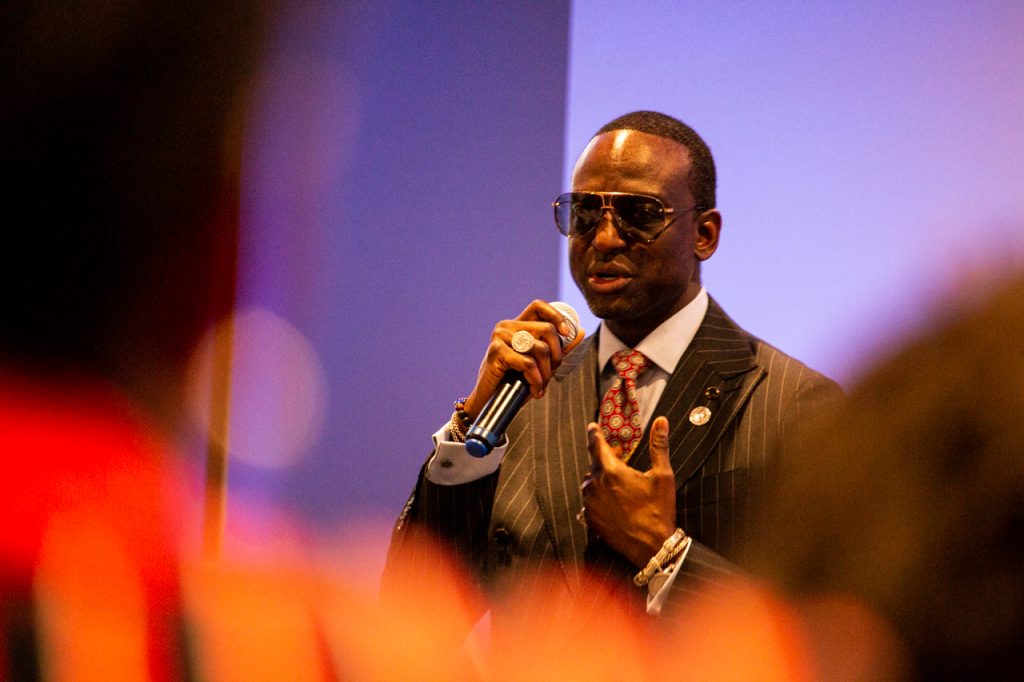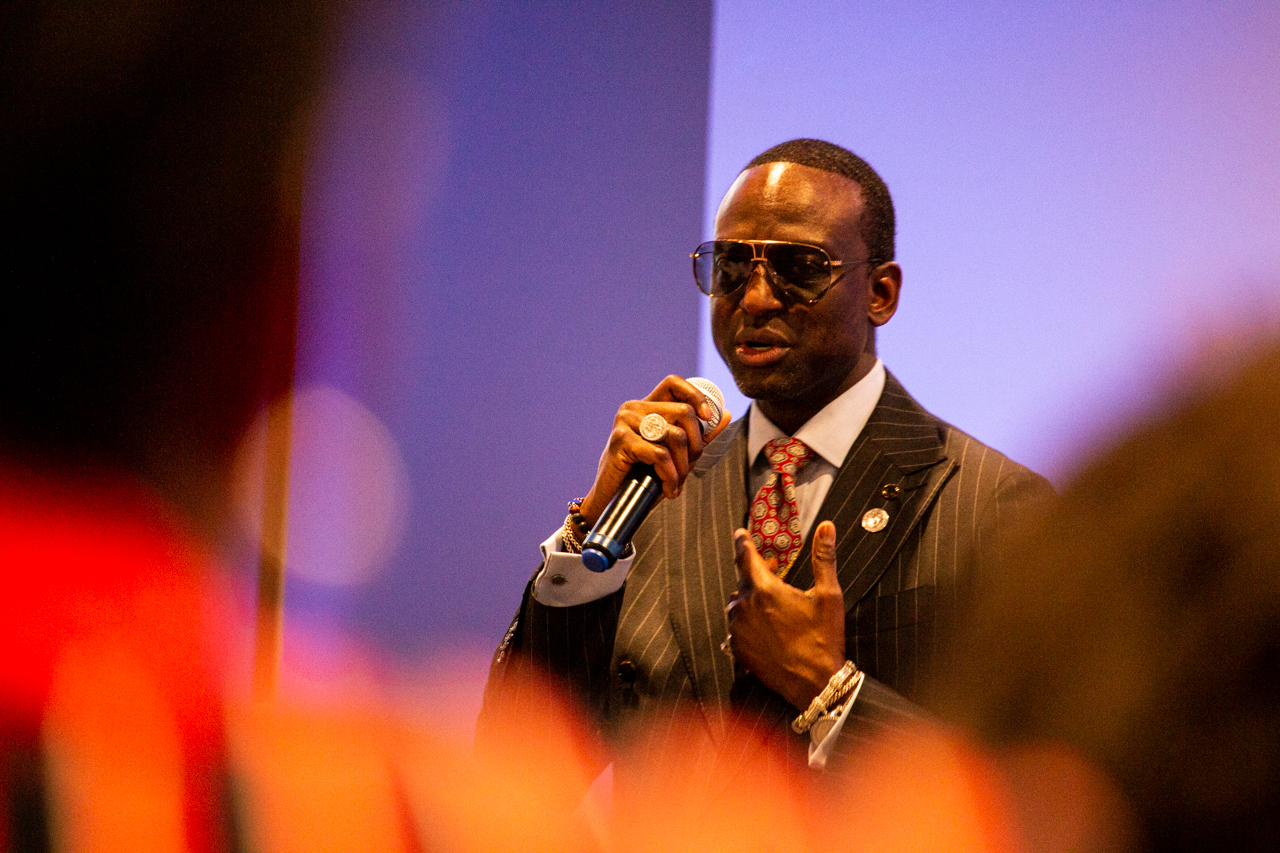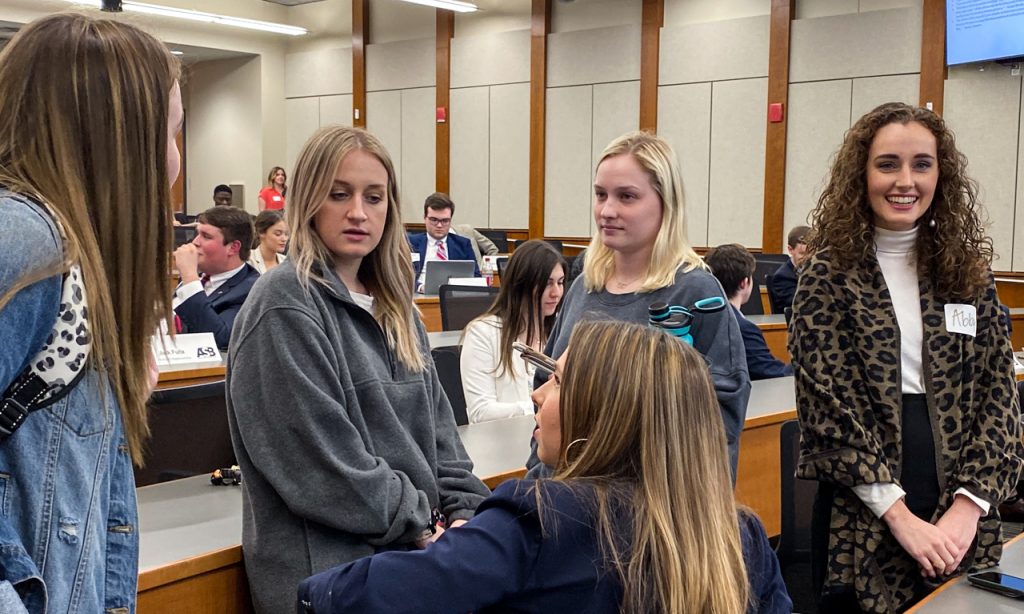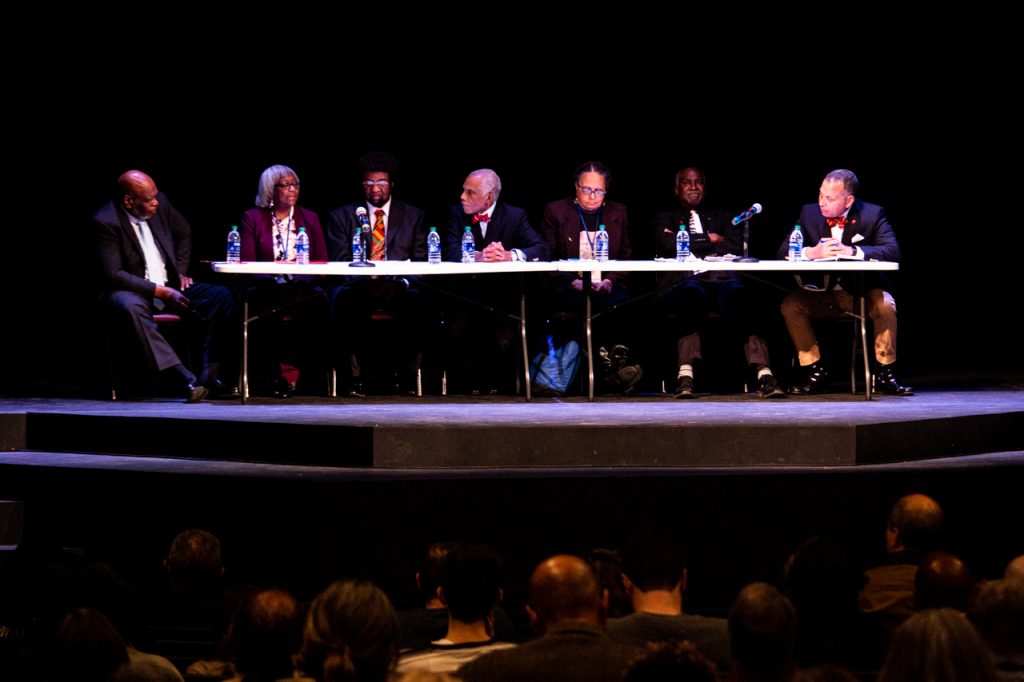
Yusef Salaam, one of five teenagers wrongfully convicted – and later exonerated – in the 1989 Central Park jogger case, visited the university on Tuesday to give the Black History Month keynote speech about the hope for change and how people can work to end racism and prejudice.
Salaam spoke of his life experiences — from growing up as a black teenager in the heart of New York City to spending six years and eight months in juvenile and adult penitentiaries and gaining his freedom after DNA evidence cleared him and the other four men of the crime.
“Most of the young people will tell you, ‘We’re going to be dead or in jail by the time we’re 21,’” Salaam said. “My question is: who gave us that thought?”
Salaam recognized that it is a hard question to answer, and many factors contribute to systemic racism and oppression. He said much of the racial and prejudicial issues that torment modern society stem from media insensitivities and bias.
One example Salaam provided in his speech was that of Pat Buchanan, a columnist who said that in order for Central Park to be safe, the eldest teenager of the Central Park Five (now known as the Exonerated Five) should be “hanged in Central Park” and the others should be “stripped, horsewhipped and sent to prison.”
Salaam also mentioned that Donald Trump funded an advertisement in 1989 that read in capitalized letters, “Bring back the death penalty. Bring back our police!”
“This is a whisper into the darkest enclaves of society,” Salaam said, “For them to do to us what they did to Emmett Till.”
Salaam recalled feeling that someone as famous as Trump calling for his death was very serious, but for Salaam, he said he sees his life’s journey as a lesson from God and an opportunity to educate minds on how to change their reality — both from within and without.
Without his experience as one of the Exonerated Five, Salaam does not believe that he would have changed as many lives as he has, and he would not have been the person he is today.
Noel Wilkin, the university provost and executive vice chancellor for academic affairs, attended the speech, and he said he was glad to see Salaam’s perspective and how he has had a ripple effect through the black community.
“I think these events help us to understand and expand our perspective of what all students experience, and also issues that we face in society are critically important for our campus … to understand the broader context of the issues that society is facing,” Wilkin said.
The Student Union Ballroom was full for the event, and tickets sold out, with over 400 students, faculty and community members in attendance.
Jonte Williams, a junior liberal studies major, said this event is “a point in history that a lot of people overlook or may not have paid much attention to.”
He said many of his classmates did not know about the Central Park jogger case, and to him, that was proof that events like Salaam’s speech are critical to growth at the university.
















